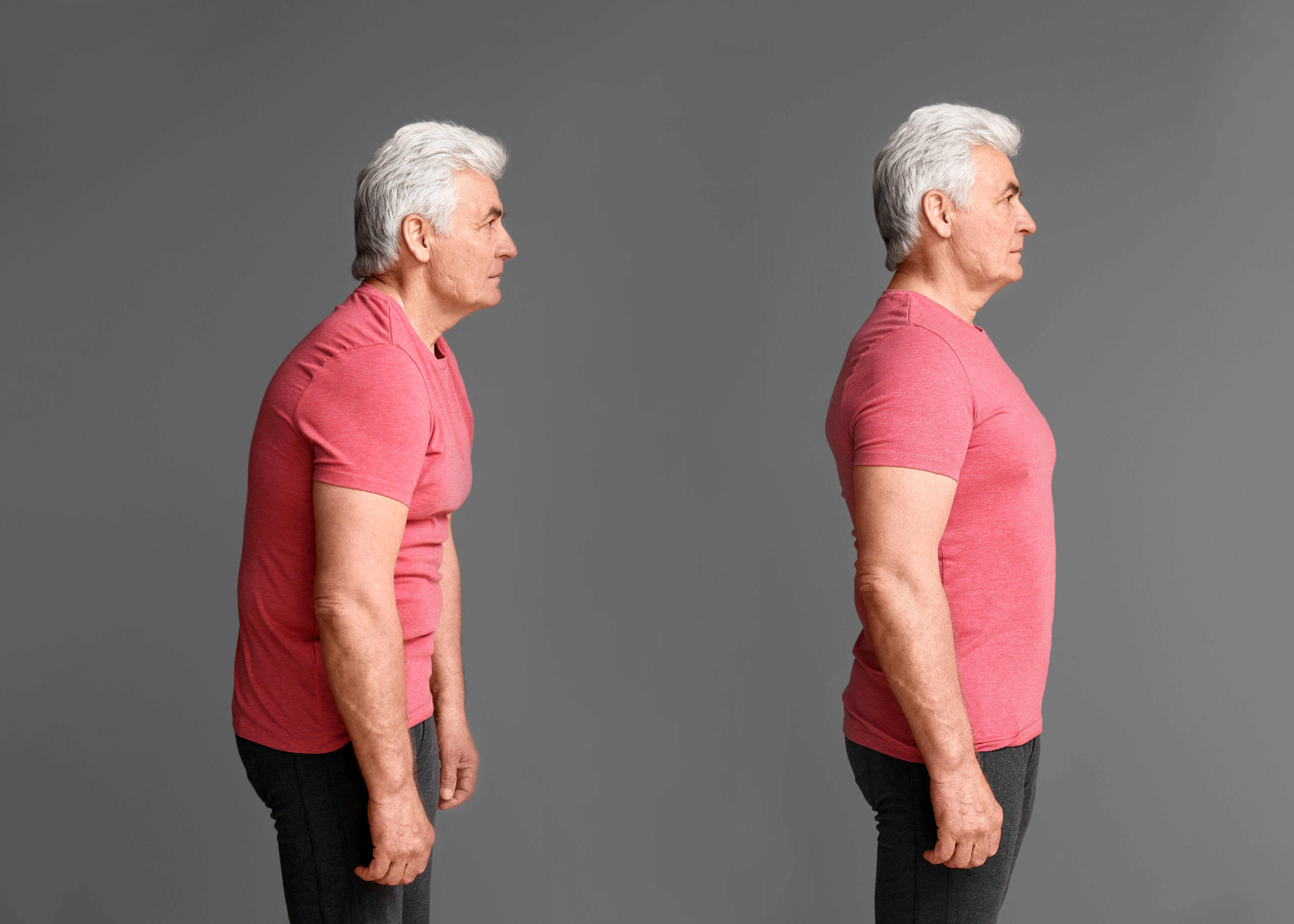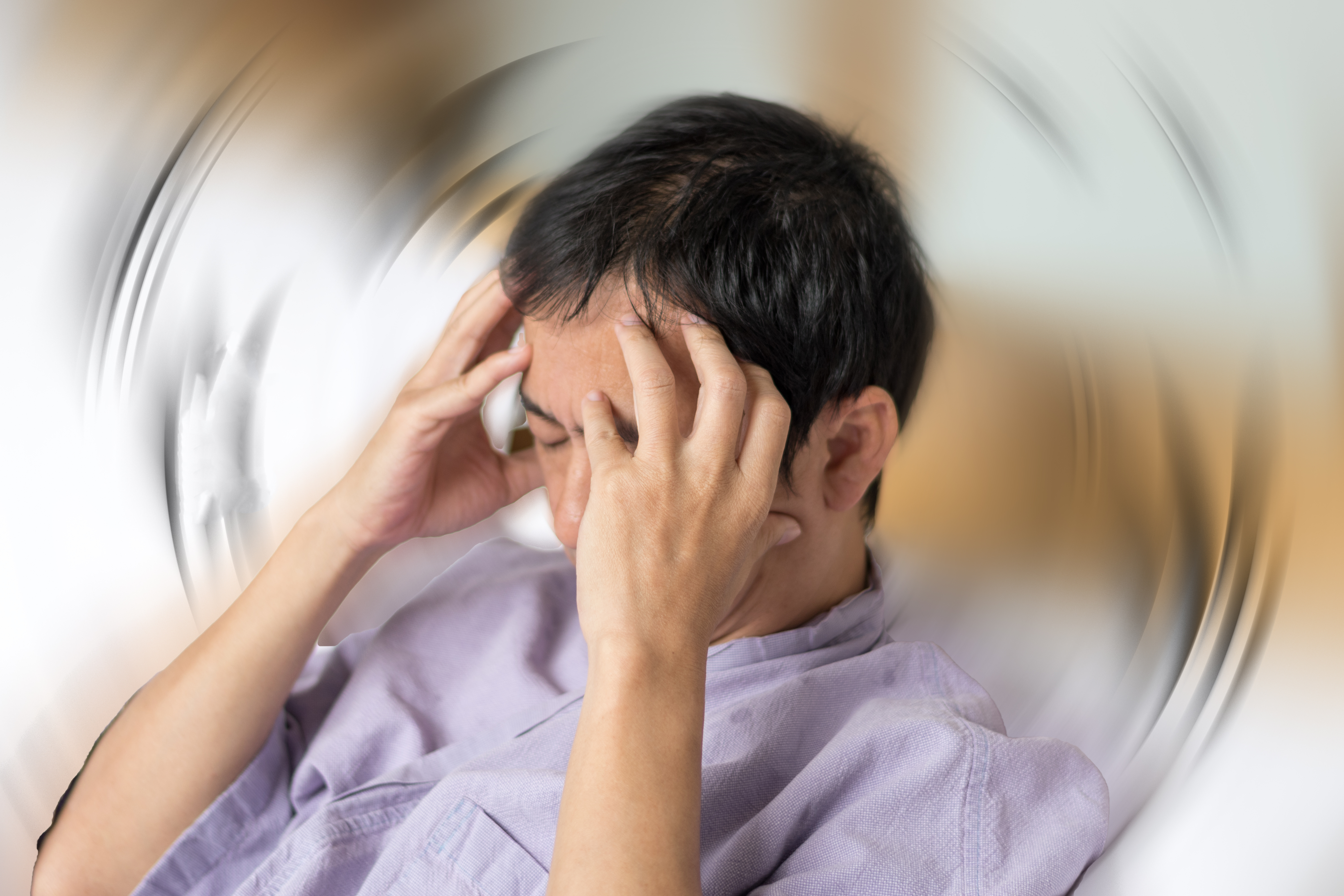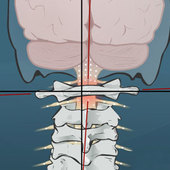What is dizziness?
Dizziness is often described as a sensation of lightheadedness along with feeling unsteady or off-balance. It can be a very unsettling experience; however, it is not always a sign of a serious underlying issue. Understanding what might be triggering your dizziness is the first step in figuring out how to fix it.
How could my posture play a role?
An important consideration that is often overlooked is posture. For us to be able to stand upright and move about our environment, our muscles need to support us against gravity. Over time, accidents, injuries, and repetitive stress (such as working long hours on a computer or poor sleeping positions) can create wear and tear in the body’s supporting soft tissues which can eventually lead to a breakdown in posture. Classically, this breakdown manifests as a slumping through the midback with the head and shoulders rolling forward. Maintaining this position over a long period of time can cause the supporting muscles of the head, neck, and shoulders to shorten and stiffen.
How could this postural distortion affect dizziness? There are tiny sensors (proprioceptors) in the muscles and ligaments that tell the brain where our body is in space, and an altered muscle function can change the ability of the proprioceptors to accurately relay that information to the brain. This miscommunication can result in feelings of unsteadiness, particularly when moving your neck or body.
What can I do about it?
Our postural system is unique in that it is largely under our sub-conscious control; however, we can still consciously control how we sit, stand, and move. One thing that I often hear my patients say is that they know how to sit or stand up straight, but as soon as they start doing something else they fall back into their poor postural habits. To understand how to fix this we have to first understand a little bit more about how our postural system works.
Posture 101:
As previously mentioned, our postural system is largely reflexive in nature, meaning that we do not have to constantly think about how we are moving or positioning our bodies as we go about our day. When our reflexive postural system starts to break down (due to accidents, injuries, and micro-stressors), we start to subconsciously shift and adapt our posture. If this is not immediately addressed, our muscles will start to support us in an unbalanced position. Over time this can result in a stiff neck and shoulders, low-back fatigue, headaches, and -yes- dizziness!
 The first step is to correct the reflexive nature of your posture. Engaging your appropriate postural reflexes can help return your body to a more balanced position thus reducing stress and strain on your muscles and joints. Working with a practitioner such as a chiropractor, osteopath, a specialized massage therapist, or a personal trainer who understands the postural system, can be very beneficial at this stage.
The first step is to correct the reflexive nature of your posture. Engaging your appropriate postural reflexes can help return your body to a more balanced position thus reducing stress and strain on your muscles and joints. Working with a practitioner such as a chiropractor, osteopath, a specialized massage therapist, or a personal trainer who understands the postural system, can be very beneficial at this stage.
The next step is to re-teach your muscles how to keep and hold you in proper postural alignment. Stretches focused on the chest, hamstrings, and hip flexors, as well as exercises to strengthen the back, are a great place to start.
In addition, ensuring your workplace is set up to promote healthy posture and taking regular movement breaks throughout the day are excellent ways to reduce postural fatigue and the side effects that come along with it.
If your posture is making you dizzy, it may be easier to fix than you think! Connect with one of our NUCCA doctors to see if they can help you straighten things out!

Dr. Michelle Speranza
NUCCA Chiropractor
The Vital Posture™ Clinic
Calgary, Canada




